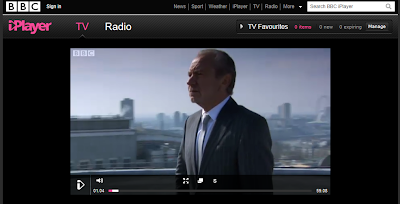More than 70% of people without
internet access have no interest in getting
broadband or feel it would be too expensive to do so, according to research published today.
With internet takeup in the UK running at about 70%, and only another 5% promising to get connected over the next six months, the ranks of the excluded represent more than one in five of the country's adult population.
The findings, contained in an Ipsos Mori survey for the media regulator
Ofcom, raise questions about the government's ability to fulfil its ambition of getting Britain fully online and come ahead of communications minister Lord Carter's final
Digital Britain report next week.
Ofcom's research found that more than two-fifths of people without the internet – generally older people – would not even go online even if they were given a computer and web access free.
The Ofcom-commissioned survey classed 42% of people without the internet – 13% of the total population – as "self-excluded".
This group tended to be older, generally did not use the internet or computers and were not particularly interested in the new technology.
"Though a lack of computer literacy might be prevalent amongst this group, it was not their defining feature," the report said. "Rather, they tended to share a sense of indifference. Many struggled to come up with any reasons why they should have the internet at home (only 12% said they felt they missed out by not having the internet at home)."
Some of these people resisted the internet as something "not for people their age", or preferred more traditional forms of communication. Others were simply not interested in the internet "because they did not find its functions appealing".
Even giving them further information about online services – 95% confessed a little or no knowledge of the internet – "seemed to make little impact".
The survey also found that 30% of those without the internet – 9% of the population – felt they could not afford it or did not have the skills to use it.
On the other side, 18% of people without an internet connection said they intended to get one in the next six months.
The report found that 42% of respondents said they were willing to pay something for an internet connection, with 13% happy to get it if they could get a free online connection and computer.
But 43% said they were not interested in the internet even if both a computer and an internet connection were provided free of charge.
"This latter group tended to be older people aged over 65, those who were retired, or with a lower household income and also those without children living at home," the report said.
This lack of interest among a significant minority of the population poses difficulties for the government as it moves more public services online and aims to get the whole population connected to the internet.
Carter's interim report acknowledged that more needed to be done to drive the takeup of broadband.
• To contact the MediaGuardian news desk email editor@mediaguardian.co.uk or phone 020 3353 3857. For all other inquiries please call the main Guardian switchboard on 020 3353 2000.
• If you are writing a comment for publication, please mark clearly "for publication".
Steph Claydon









 43 Comments
43 Comments iPad 2From
iPad 2From iPhoneFrom
iPhoneFrom

 iPod shuffleJust
iPod shuffleJust











